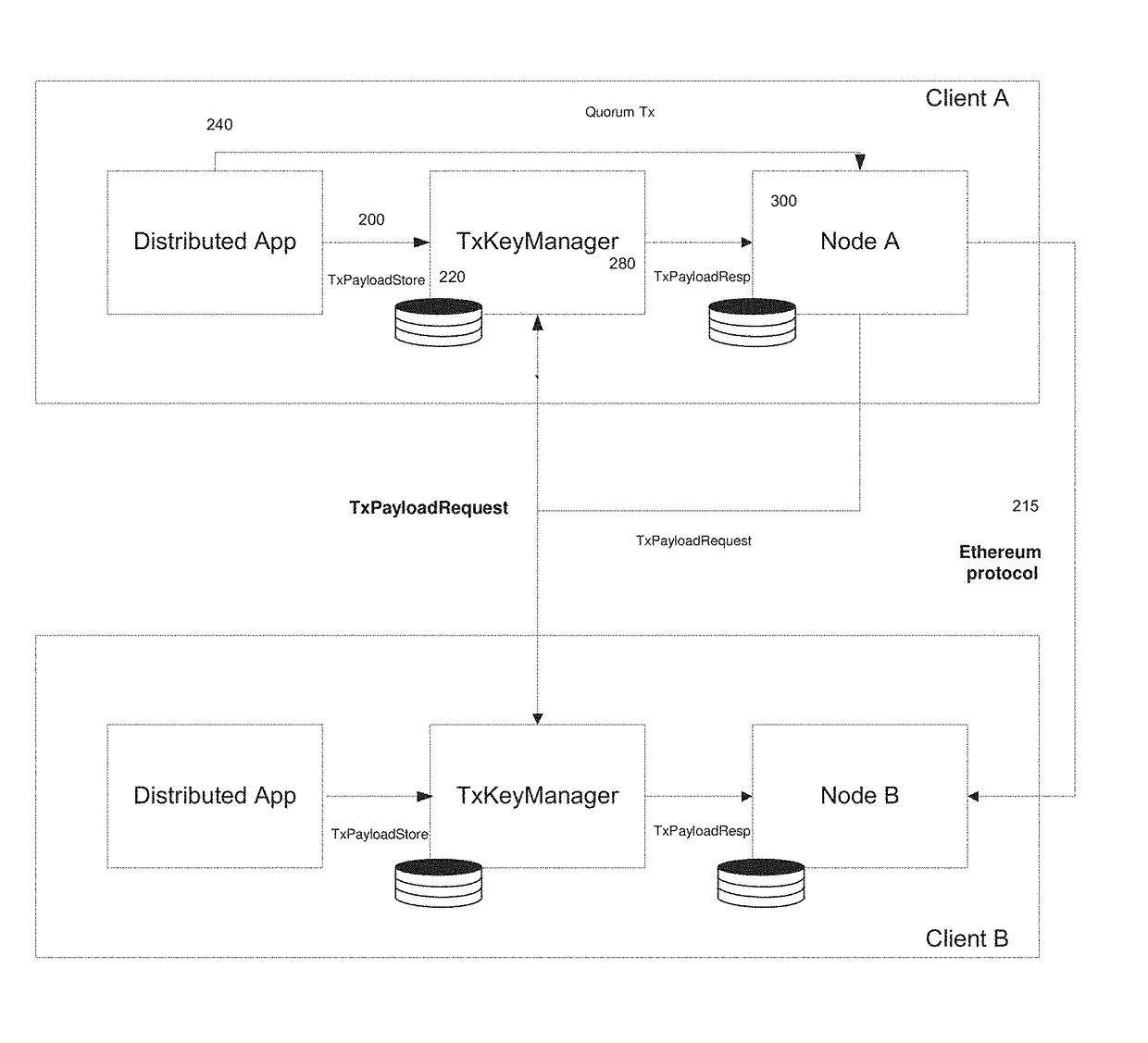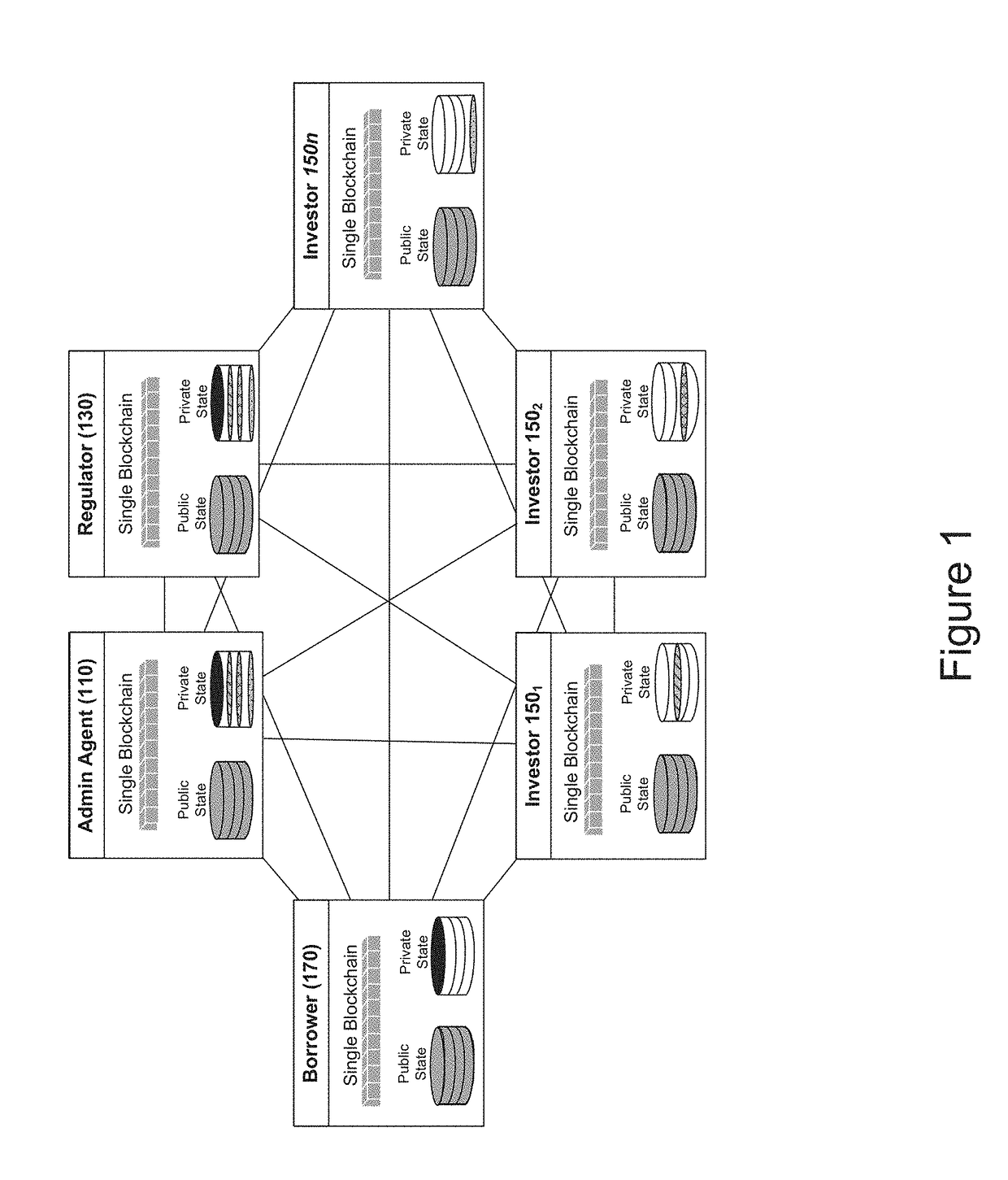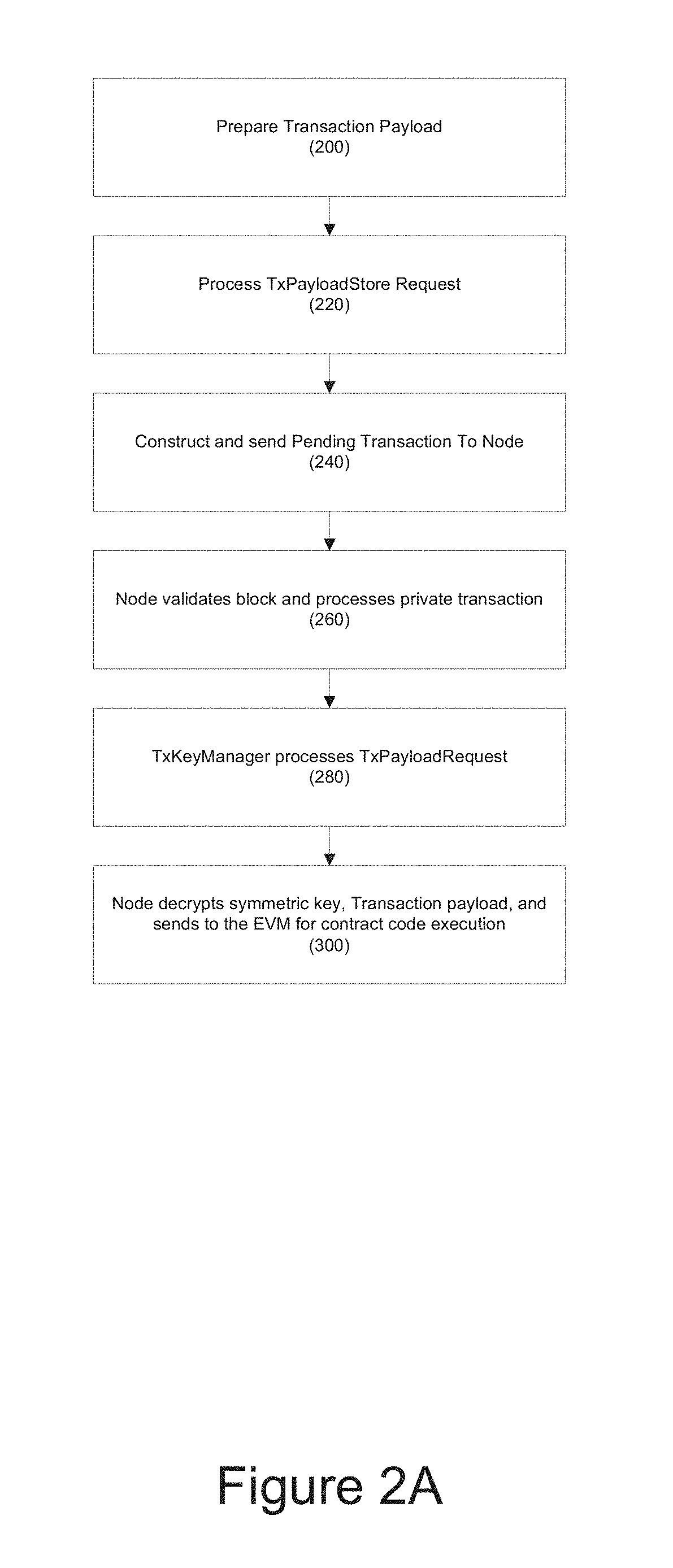Systems and methods for providing data privacy in a private distributed ledger
a distributed ledger and data privacy technology, applied in the field of systems and methods for providing data privacy in a private distributed ledger, can solve problems such as difficulty in “speeding ahead” of other participants with fraudulently-altered data
- Summary
- Abstract
- Description
- Claims
- Application Information
AI Technical Summary
Benefits of technology
Problems solved by technology
Method used
Image
Examples
example 1
Syndicated Loans
[0081]Syndicated loans are particularly well-suited for a private distributed ledger (including those that support smart contracts) due to the extended settlement times resulting from manual processes and reconciliation efforts. Syndicated Loans are over the counter (OTC) assets, involving transactions that generally include an administrative agent, a borrower, a regulator, a party and a counterparty. The administrative agent and regulator functions are central to all syndicate loan activity and may be leveraged. The data privacy requirements for Syndicated Loans may include, for example: (1) the syndicated loan lender list; (2) the actual identities of the parties associated with the loan transactions; (3) the prices and sizes of trades related to the syndicated loan; and (4) the actual cash flow amounts related to loan servicing and settlement.
[0082]In one embodiment, data privacy may be achieved by using encryption and segmentation. For example, encryption may be ...
example 2
Private Transactions and Private Contracts
[0083]During the block construction and validation process, the node party to the private transaction may decrypt the transaction data prior to sending to, for example, the Ethereum Virtual Machine. The Ethereum Virtual Machine may therefore not need to support encryption / decryption operations. The private data of a private contract may be stored in the clear in the local state database but this is fine as only nodes party to the transaction will store the data. Private Contracts may be between the client and the administrative agent. a transaction according to one embodiment may contain: (1) the recipient; (2) signature identifying the sender; (3) the amount of ether; (4) an optional data field (encrypted in the case of a private transaction); (5) start gas; and (6) gas price.
[0084]A diagram of a private transaction and state database is provided in FIG. 7.
[0085]In one embodiment, the administrative agent may provide encryption key manageme...
example 3
Smart Contracts (Business Logic)
[0086]In one embodiment, a syndicate loan smart contract that receives the encrypted data which the end users interact with may be customized / private for the end user and the Administrative Agent. For example, if a syndicated loan involves 10 investors, there may be 10 separate (private) contracts, one for each investor. These contracts may initially be generated (programmatically) during the loan origination workflow and client on-boarding workflow operations. End users may interact with other contracts via public transactions but any private transactions may be required to be handled through their private contract. Thus, this contract may manage all the state information related to the client's position and transactions of the specific loan.
[0087]The Administrative Agent may broker all private transactions among the relevant parties. For example, the Loan Investor contract may have a function to trade, passing the parameters of the trade (price, siz...
PUM
 Login to View More
Login to View More Abstract
Description
Claims
Application Information
 Login to View More
Login to View More - R&D
- Intellectual Property
- Life Sciences
- Materials
- Tech Scout
- Unparalleled Data Quality
- Higher Quality Content
- 60% Fewer Hallucinations
Browse by: Latest US Patents, China's latest patents, Technical Efficacy Thesaurus, Application Domain, Technology Topic, Popular Technical Reports.
© 2025 PatSnap. All rights reserved.Legal|Privacy policy|Modern Slavery Act Transparency Statement|Sitemap|About US| Contact US: help@patsnap.com



